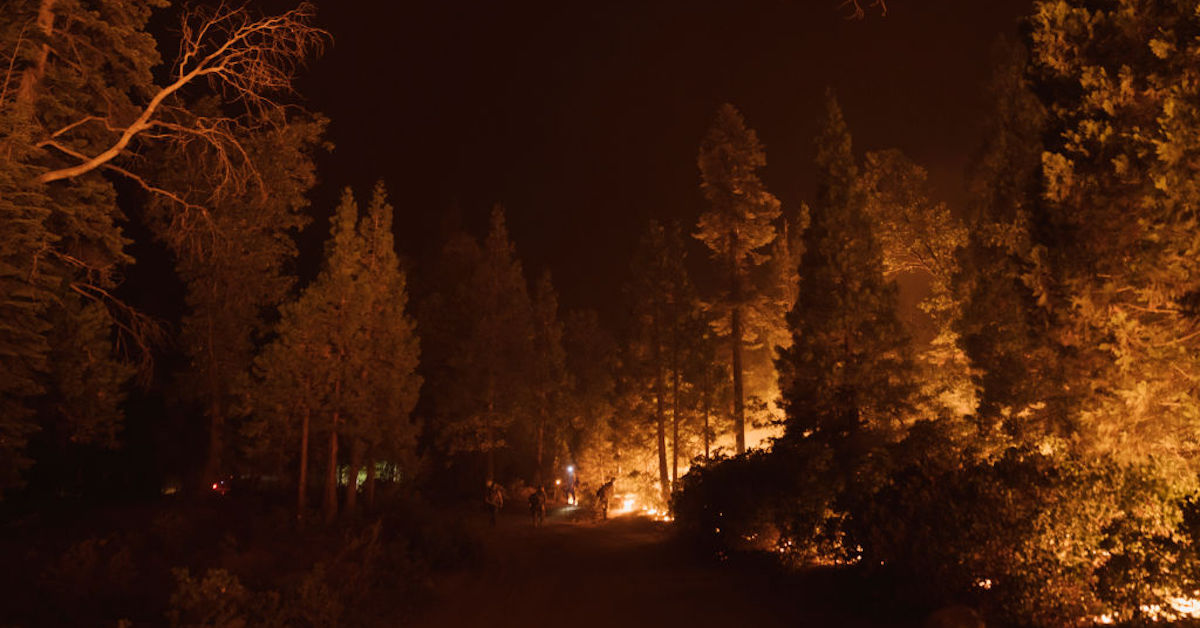Yesterday, the Intergovernmental Panel on Climate Change issued its latest report stating, unequivocally, that “there is a rapidly closing window of opportunity to secure a livable and sustainable future for all.” The report doesn’t pull any punches. It states, in clear and undeniable terms, that time is running out for industrial nations to switch from fossil fuels to more sustainable energy sources. In order to head off the potentially civilization-ending effects of climate change, the average global temperature can’t be allowed to rise above 1.5 degrees Celsius over the preindustrial average—but it’s currently on track to pass that threshold within the next decade.
And yet wealthy nations continue to pump carbon into the air with ghastly fervor.
It’s been well-documented that the effects of climate change are already being felt all over the world. Here in Los Angeles, we’re currently being buffeted by our 12th atmospheric river this winter, after weathering several years of a megadrought. Atmospheric rivers, the bands of airborne moisture that lead to severe storms and flooding, have been linked to climate change, with the result that California has whiplashed between extremes: in summer and fall we suffer heatwaves and record dryness, with freak snowfalls and deadly flash floods occurring in winter and spring. 13 people in the San Bernardino mountains died after a record-breaking blizzard a few weeks ago, and at least 17 died in January’s floods.
The storms cause more subtle disasters, too. Right now, trees in my neighborhood are toppling over left and right. Since developers scrape away topsoil when they build, tree roots only have a shallow layer of soil to grip, and a heavy rainfall dislodges them. The loss of trees accelerates the effects of climate change even more, and as climate change progresses and California’s weather becomes more severe, cultivating any plant life becomes more challenging. That situation becomes even more dire when you consider that almost half of the U.S.’s fruits, nuts, and vegetables are grown in California. Climate change and food insecurity are inseparable issues.
Then there are the wildfires. Fires have always been a fact of life in California—especially since local governments abandoned the fire management practices Native people successfully used for millennia—but in recent years they’ve become bigger, hotter, and more frequent thanks to the drought. Two years ago, during the Covid closures, I worked curbside service at my library under a brown sky thick with smoke. The sun turned blood-red, like an apocalyptic movie that was a little too on the nose.
Let me be clear: I’m not just complaining about some uncomfortable weather. The effects of climate change are being seen and felt all over the world. Fossil fuels may be causing the bulk of the damage, but our civilization’s whole attitude towards the earth we live on is to blame. We need to stop viewing the land as a source of wealth at best and a nuisance at worst. We need to start seeing it as our partner in working for everyone’s survival.
If you think you’re safe from climate change, think again. This is the endgame, and our current strategy of denial and procrastination is doomed to lose spectacularly.
(featured image: Eric Thayer/Getty Images)










Published: Mar 21, 2023 05:37 pm